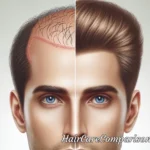Undergoing a hair transplant can be a life-changing decision, promising to restore not just hair but also confidence and self-esteem. However, the journey doesn’t end with the procedure itself. Post-operative care plays a crucial role in ensuring the success of the transplant. Among various factors affecting recovery and results, smoking stands out for its potential to hinder healing and affect the overall outcome. This article delves into the risks associated with smoking after a hair transplant, backed by scientific insights and expert opinions.
The Impact of Smoking on Wound Healing
Smoking has long been known to impair the body’s healing process. The harmful chemicals in cigarettes, including nicotine, carbon monoxide, and hydrogen cyanide, can constrict blood vessels, reducing blood flow to the transplant site. This limitation in blood supply not only slows down healing but also increases the risk of infection, scarring, and complications. Understanding the risks of hair transplant failure is essential for anyone considering or having undergone the procedure.
Effects on Hair Graft Survival
The success of a hair transplant largely depends on the survival of the hair grafts transplanted to the balding areas. Smoking can jeopardize this by decreasing the oxygen and nutrients available to the new grafts, thereby affecting their ability to thrive. Reduced blood flow means that the necessary growth factors and proteins fail to reach the grafts, compromising their survival.
Increased Risk of Infection
Compromised Immune Response
Smoking can weaken the body’s immune system, making it more susceptible to infections. For individuals who have just undergone a hair transplant, this poses a significant risk. An impaired immune system struggles to fight off bacteria and viruses, raising the concern of infections at the transplant site.
Delayed Healing Times
Furthermore, smokers may experience prolonged healing times post-transplant. The compromised blood flow and reduced oxygen supply to the tissues can extend the recovery period, delaying the much-awaited results of the procedure and increasing discomfort.
Adverse Cosmetic Outcomes
Impact on Hair Density
The restricted blood flow caused by smoking not only affects the survival of the transplanted hair grafts but can also impact the density of the newly grown hair. For those aspiring for a fuller head of hair, understanding the implications of smoking on the final cosmetic outcome is crucial.
Poor Scar Healing
Scarring is a concern for many undergoing a hair transplant, especially for procedures like FUT (Follicular Unit Transplantation) that can leave a linear scar. Smoking can result in poor scar healing, making it more visible and harder to conceal.
Effects on Hair Texture and Quality
Additionally, the toxins in cigarettes can affect the quality and texture of both the transplanted and existing hair. Smokers might notice their hair becoming thinner, weaker, and more prone to breaking, detracting from the overall results of the transplant.
Managing the Risks: Quitting Smoking Pre and Post-Transplant

Given the myriad of risks associated with smoking post-hair transplant, quitting is highly advisable. Many surgeons recommend stopping smoking at least a few weeks before the procedure and maintaining this cessation during the recovery period. This not only improves the chances of a successful transplant but also contributes to overall health and well-being.
Alternative Risks to Consider
Besides smoking, there are other factors that can affect the success and recovery process of a hair transplant. Being aware of these can help individuals better prepare and care for their transplants. Concerns such as the effects of sweat, managing sweating, and understanding the implications of sexual activity post-transplant are also critical for a comprehensive post-operative care plan.
Expert Advice and Recommendations
Healthcare professionals and hair transplant surgeons universally agree on the detrimental effects of smoking on surgical outcomes. Their advice and recommendations are grounded in scientific research and years of clinical experience. Adhering to their guidance not only aids in a smoother recovery but also ensures the longevity of the transplant results.
Navigating Post-Transplant Care
Post-operative care is a multifaceted approach that goes beyond addressing just smoking. It includes managing exposure to saltwater, understanding medication effects, and adopting a healthy lifestyle. Each aspect plays a vital role in achieving the best possible outcome from a hair transplant.
Conclusion
In conclusion, smoking can significantly compromise the success and results of a hair transplant. From impeding wound healing to affecting the survival and quality of the transplanted hair, the risks are manifold. Quitting smoking, both before and after the procedure, is strongly advised to ensure optimal recovery and cosmetic outcomes. Alongside smoking cessation, being mindful of other post-operative care aspects can further enhance the success of the transplant. Ultimately, a successful hair transplant is not just about the procedure but also how well one cares for their health and well-being in the aftermath.






